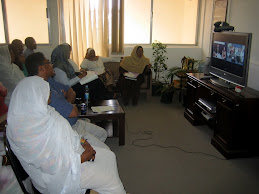Salam Everyone first I would like to thank the American Embassy for
the DVC about the use of technology as a tool for teaching English.
The quotation of Winston Churchill is really true if we look back in
the past we will be able to see the future . What I feel is that as
university teachers we should equip our students with tools they need
in their future. We shouldn't teach in the way our own teachers taught
us 14 years ago because we are in different times. We are caught in
the middle between two generations. The first is our teachers who
lived most of their lives without the internet and our students who
are living in the age of mobile technology . We have to take a
decision to which generation we want to stick to. I really had great
teachers who taught me most of what I know, they are a great
generation. But we have a responsibilities towards our students. We
have to equip them for a time which we may not live to see.
I would like to invite you all to read an article written by Vance
Stevens an American who works in Abu Dhabi entitled "New Learning for
Sustainability in the Arab Region Motivating Change: New Learning in
Formal Education for Sustainable Development" It is a very interesting
article and I hope every one will enjoy reading.
This is the link
http://prosites-vstevens.homestead.com/files/efi/papers/2007alexandria
Here is a link to some of the pictures taken during the DVC
http://picasaweb.google.com/USEmbassyKhartoum/UsingTechnologyInEnglishLanguageTeaching
Hala



